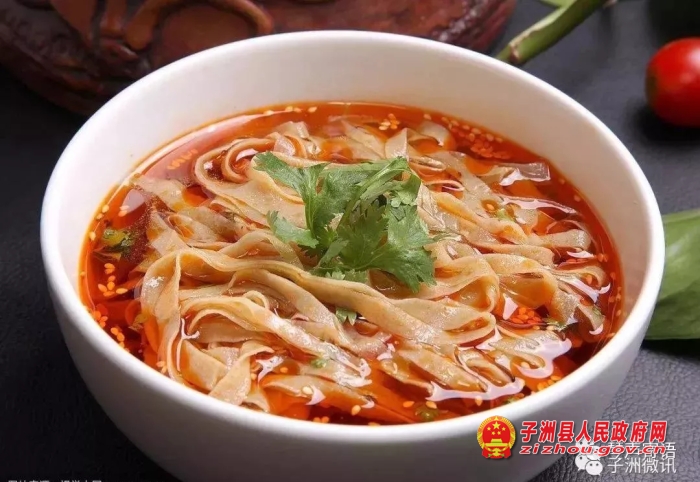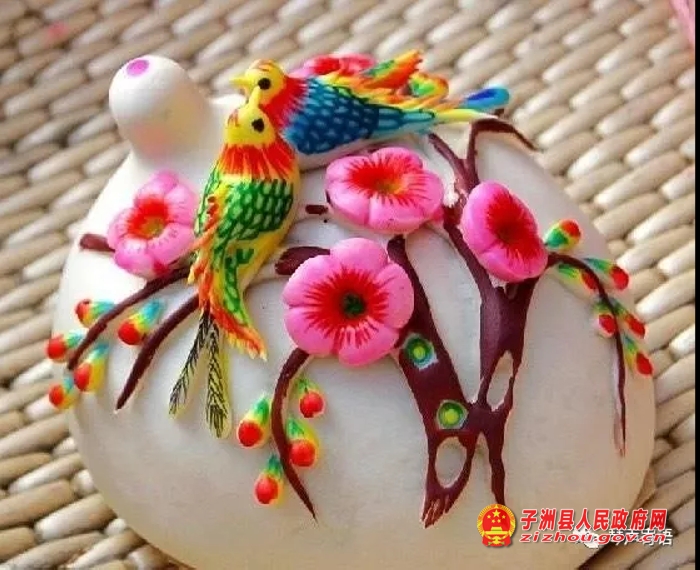In Shaanxi, there is a small county in northern Shaanxi called Zizhou. Due to the topography and geomorphology, it is divided into two blocks, Xichuan and Nanchuan, with two separate rivers of the same age as human history: Dali River and Huaining River. The name of Nanchuan in the late Warring States period is called Chong'erchuan, and Huaining River is called Zou Ma Shui in Shui Jing Zhu. Now I will tell you the beautiful story that happened in Chongerchuan and Zoumashui.
I. The story of Chong'er and Ji Wei
Jin Wengong Chong'er was one of the Five Dominations in the Spring and Autumn Period in Chinese history. He once lived in exile in this land and experienced a wonderful marriage along the Huaining River.
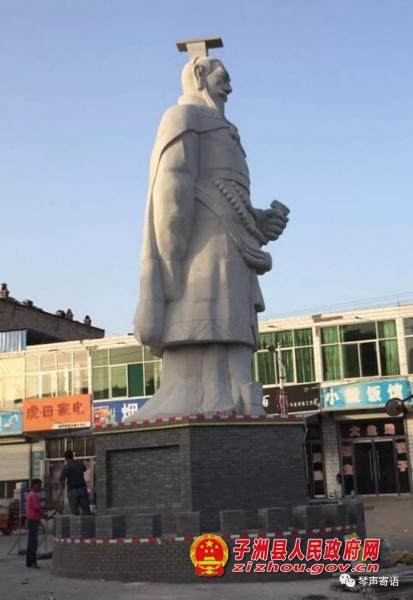
During the Spring and Autumn Period, there was a civil strife in the Jin country. Jin Gongzi Chong'er was persecuted by his father Jin Xiangong and Li Ji, unable to gain a foothold in his fief, Pucheng, and fled. He first went to his mother-in-law's home-Di Guo (an ethnic group at the time, living in the area of northern Shaanxi. The upper reaches of the Huaining River in the county is also called Chong'erchuan because it is said that Chong'er once lived here). At that time, Chong'er was 43 years old. There were dozens of people who fled with Chong'er, including Hu Yan, Zhao Shuai, Jia Tuo, Xian Zhen, Wei Wuzi and others. Later, Di Guo attacked Yu Jiruu (another species of Chi Di, the surname Kui) and obtained two women, one named Shu Wei and the other named Ji Wei. Chong'er married Ji Kui and had sons Bo Min and Shu Liu. Zhao Shuai married Shu Kui and gave birth to Zhao Dun. Chong'er had lived in Di for five years, and Jin Xiangong died. The Minister of the Jin Dynasty, Rick, sent people to meet Chong'er and prepare to make Chong'er the monarch. Chong'er was worried about being killed and did not return home. Later, Yiwu, the younger brother of Chong'er, became the monarch, namely Jin Huigong. Jin Huigong once sent someone to assassinate Chong'er. Chong Er said to Zhao Shao: "The reason why I fled to Di was not because Di could be used as a base for rejuvenation, but because Di was relatively close to Jin and was temporarily used as a place to recuperate. Now the recuperation is over and let’s go to a big country." So they prepared to leave Di for Qi. When leaving, Chong'er said to his wife Ji Wei: "I hope you can wait for me for 25 years. If I don't come back after 25 years, you can remarry someone else." Ji Wei smiled and replied: "I have grown old after 25 years’ waiting. How can I remarry when I am old? I will always wait for you." Chong'er had lived in Di Guozong for twelve years and was 55 years old when he left.
In the end, Chong'er returned to Jin and became one of the five hegemons of the Spring and Autumn Period.
II. The story of Jiezitui’s cutting off his own though flesh to save life of the king
Jie Zitui was a famous official and righteous of Jin during the Spring and Autumn Period. When Jin Wengong Chong'er was still a son, he went into exile in various countries. He ran out of food when he came to the Zoma shui River. When he was hungry and cold, Jie Zitui cut off a piece of meat from his thigh and made a dish of "boiled meat".
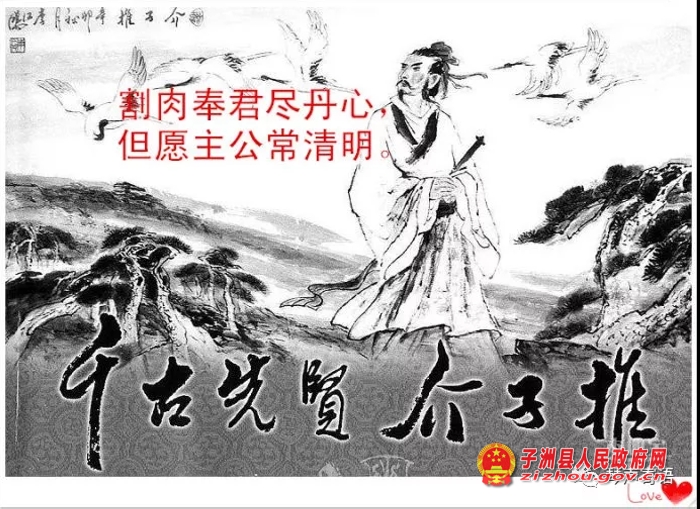
He didn’t know he was eating the meat on Jie's legs until he had eaten enough. He was greatly moved, claiming that if one day he became a king, he will repay Jie Zitui. Jie Zitui had followed Chong'er in fleeing for 19 years. Hungry and cold, hungry and cold, he tried his best to prepare for the dangers and difficulties. Chong'er finally ended his nineteen-year exile and returned to Jin to become a monarch.
When Jin Wengong returned to the country and became a ruler, the people who fled with Chong'er in those years sought the title. Only Jiezitui was unwilling to boast merit and favor. He believed that Jin Wengong’s return to the country was a god’s will, and felt that his loyalty to the emperor should be issued. There was no need to be rewarded, and he was ashamed of accepting the reward. He looked down on people like Hu Yan who "thought of his own power" and asked for rewards, and thought that they were not different from thieves who "stole people's wealth", which made him "difficult to deal with them". Disdainful of being with them, he took his mother to live in Mianshan and became a hermit who did not enjoy national salary. The Spring and Autumn of Lushi states that Jie Zitui refused to be rewarded, and once wrote a poem, "There are dragons flying around the world. Five snakes follow them, and they are their complements. The dragon returns to its hometown and gets its place. Four snakes follow them and got rain. A snake is ashamed and dies in the middle field."
After Jin Wengong came to the throne, because of a lot of political affairs, he forgot Jie Zitui for a while. Later, when someone mentioned the matter of "cutting flesh to serve the king", Jin Wengong was very ashamed, so he went to Mianshan to invite Jie Zitui. Jie Zitui hid in the mountain and was unwilling to come out to receive the reward. Jin Wengong ordered his subordinates to set fire to the mountain and forced Jie Zitui to show up. As a result, Jie Zitui held his mother and was burned to death under a big willow tree. Wengong discovered that there was a willow tree hole blocking the spine, and there seemed to be something in the hole. It turned out that it was a piece of clothing with a poem of blood on it: "I Cut the flesh to serve the king, and hope that the lord will always be clear. The willow will never be seen as a ghost, and it is better to be an adviser in the companion of the king. If the lord has me, you should reflect on yourself when recalling me. The minister has a clear conscience underground, and you are diligent and clear.” In order to commemorate this loyal minister and righteous man, Jin Wengong ordered that no fire for cooking was allowed in the country on the day of Jie’s death. Cold food was eaten, so comes the Cold Food Festival, which has lasted for more than two thousand years, and is known as the largest folk festival. In the second year, Jin Wengong led his officials to climb the mountain to pay homage, and found that the old willow tree resurrected after dying. He gave the old willow tree the "QingMing Willow" and told the world that the day after the Cold Food Festival was the QingMing Festival.
Jie’s integrity of loyal monarch to righteousness and despising fame and fortune has been praised and have moved people for generations. In order to commemorate him, later generations built a large number of ancestral temples to pay homage to him. Huang Tingjian praised, in his poem Qing Ming, "The sages burned to death, and the eyes are full of basil, and there is a hill." In the first year of Tianxi, Song Zhenzong edicted Jie Zitui Jiehuihou.
III. The story of Li Guang’s shooting the tiger
The Huaining River twists, turns and flows eastward non-stop day and night. The water of the river is not big, but very turbulent. There is Shihuwan in Peijiawan Town of Huaining River. There is a big rock on the beach of Shihuwan, which looks like a lying tiger. There is an eye several inches deep on the rock. And what happened?

Legend has it that in the Western Han Dynasty, Li Guang, who was known as the parachutist, had outstanding military exploits when guarding the prefecture. One day, General Li went out hunting again. When he returned, it was late and in the dim moonlight, he suddenly found a vicious and mighty white tiger lying in the grass on the riverbank. General Li hurriedly took out the strong bow, opened the bow fully like the full moon, and shot at the white tiger. General Li shot the "tiger" down in the river beach with one arrow. General Li didn't take a closer look, and went back to camp. The next morning, he sent soldiers to check the place where he shot the tiger last night, but the tiger wasn’t seen. An arrow was seen inserted into a boulder on the river beach with several inches deep. It turned out that General Li was so powerful that he accidentally shot an arrow on a rock last night.
The soldiers reported this to General Li, and General Li also secretly marveled at his brawn strength. He came to the place where he shot the tiger last night, shot several times and could not shoot into the rock again.
It is said that Nanchuan’s Shihuwan is the place where General Li Guang shot the tiger. Shihu is still lying on the river beach, and it seems to tell the martial arts of General Li. There is a spring near Shihu, called Baoquan. Legend has it that Shihu often runs to Baoquan to drink water at night.
IV. The legend of Hongliuwan and Xuejiacheng
There is a village called Hongliuwan next to Laojundian Town in Zizhou County. The Hongliuwan River is wide and flat. The Huaining River surrounds a big bay here, and the bay is full of willow trees. The willow tree is gloomy and blue. When the wind blows, it makes a "oooo" sound, as if to confide in a tragic past.
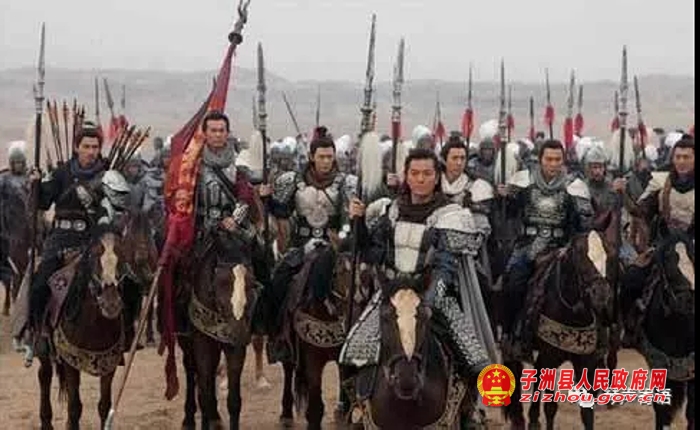
40 miles east of Hongliuwan was Xuejiacheng, originally called Huainingzhai, where Yang Jinhua, the descendant of the Yang family of the Song Dynasty, was stationed. Yang Jinhua rode a horse and shot every day. The arrows are good arrows. When she raised her hand, the eagles fell in pairs. The horses are good horses, and they lept across three-foot-wide Huaining River. 20 miles west of Hongliuwan was the city of Liuzhou, originally called Suipingzhai, where the teenager Yang Wenguang was stationed. The two cities were 60 miles apart and were defended by two siblings. Sister Yang Jinhua worked, gave her younger brother Yang Wenguang a mouthful of the golden bell, and told him that she would come to rescue him as soon as he struck the golden bell in an emergency. Liuzhou City is about 100 miles away from Xixia, and it is indeed necessary to take strict precautions.
Yang Wenguang was only seventeen years old at the time, young and energetic. One morning, he led his troops to drill on the school grounds, deployed them in an orderly manner, and was proud of his martial arts. Suddenly he remembered my sister Yang Jinhua. The two hadn't seen each other for several months, and it would be great to be able to study martial arts together. , it would take time to send someone to invite her and maybe she wouldn't come. So he remembered the golden bell that he had never used before. With a light tap, he heard the sound of golden bells drifting away like thunder.
Yang Jinhua was combing her hair. The moment she heard the sound of the golden bell, she hurriedly ordered her soldiers. She rushed to Suipingzhai, only to see her younger brother Yang Wenguang training soldiers and horses on the school grounds. The younger brother greeted his sister with a grin. The older sister knew that the younger brother had made a joke and blamed Yang Wenguang, who repeatedly admitted his mistake. She told him to be careful in the future, and not to be willful any more.
It was ok for another few months. One morning, Yang Jinhua was combing her hair again, and the golden bell rang again. Yang Jinhua thought her brother was joking again and ignored it. So she cleaned up calmly, ready to eat. Suddenly, a hurried bell rang again, and meanwhile, the flying knight sent by Yang Wenguang arrived. Only then did Yang Jinhua know that there was war in Suiping zhai, she was busy leading her generals along the Huaining River. When she reached HongLiuwan in Laojundian, she saw that Yang Wenguang was injured and defeated. The soldiers were almost dead. The blood flew into a river, and a bay of young willows was stained red with blood. Yang Jinhua was both remorseful and sorrowful, and led the soldiers to Suipingzhai with his younger brother. The Xixia army, which had captured Suipingzhai, was celebrating the victory triumphantly, unexpectedly encountering the attack of Yang Jinhua and Yang Wenguang. Yang Jinhua took the lead and was extremely brave. With a silver spear at the fingertips, the Xixia Army was injured or dead, and Suipingzhai finally returned to Yang Wenguang's hands.
Although this battle turned defeat into victory, the lesson was painful. In order to remember the lesson of this blood, Yang Jinhua changed Huainingzhai Village into the Blood Family City and stationed an army in Hongliuwan, calling this place Hongliu Bay. The name Hongliuwan is still in use today, and later people changed the Blood Family City into Xue Jiacheng.
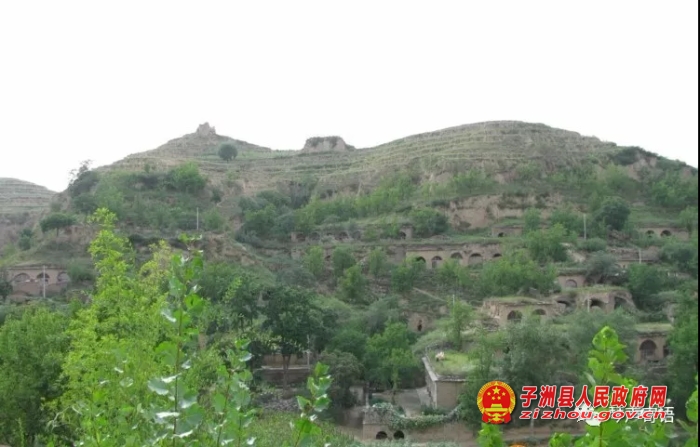
History and legends complement each other in Zizhou, colliding with beautiful sparks and leaving endless thoughts and reveries for future generations. Today’s hospitable Zizhou people are taking their sages as their role models. In Chongerchuan, Zoumashui, and in a beautiful village called Yuanzeping, the village revitalization strategy is taken as an opportunity to create a landscape and pastoral complex that the world people aspire to reproduce that real history, and promote a beautiful legend.
"The whole world is the same cold food, and the person is the same one for thousands of years, relying on the sacred cold food festival that has been passed down by the Chinese nation for thousands of years, we pay homage to the heroes in our hearts, inherit the common Qing Ming Festival of Chinese all over the world, and organize the flourishing masters from all over the country to gather in Zizhou to show their talents. It is also supplemented by performances of traditional folk storytelling, taotsing, basic interests, jingle, Yangge, suona horn, waist drum, stone carving, paper-cutting, and embroidery. There are also a variety of northern Shaanxi flavor snacks: tart, yellow steamed bun, pancake, fried cake, fried bun, meat pie, deep-fried dough cake, stalls, miscellaneous noodles, squash, getu, multigrain porridge, vegetable mixed rice, potato shreds steamed with flavour, potato momo, pouring potato, millet porridge, stewed eight bowls, fried eggs, sauerkraut, yellow rice with rice, diced lamb rice, sesame soup rice, dry fried noodles, mung bean porridge, sorghum porridge, barely kernel, buckwheat noodles with glutinous soup, braised pork with vermicelli, cold noodles, bowl holders, black noodles, haggis, and intoxicating wine, which make tourists from all directions a real treat.

